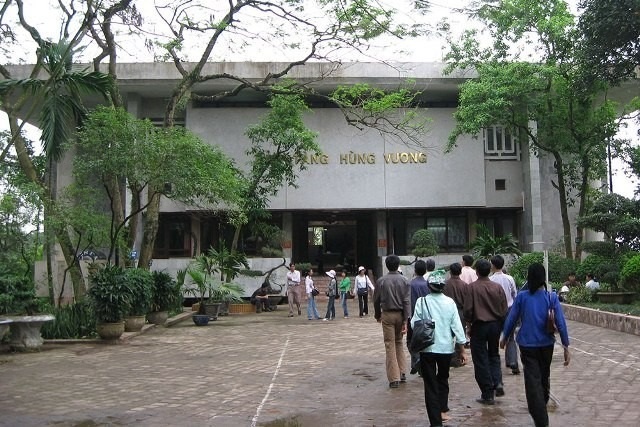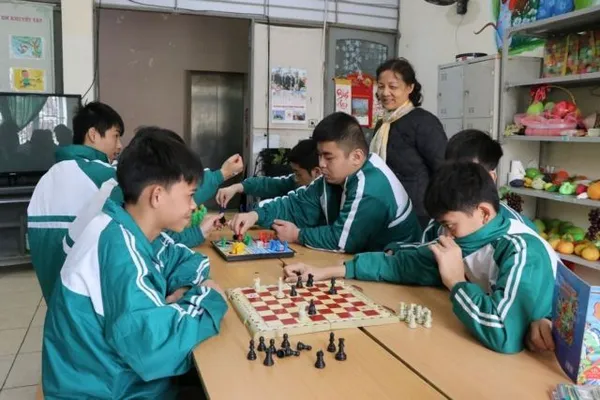

A man who studied to be an electrical engineer has an amazing collection of books.
Trịnh Hùng Cường loves books because he loves reading.
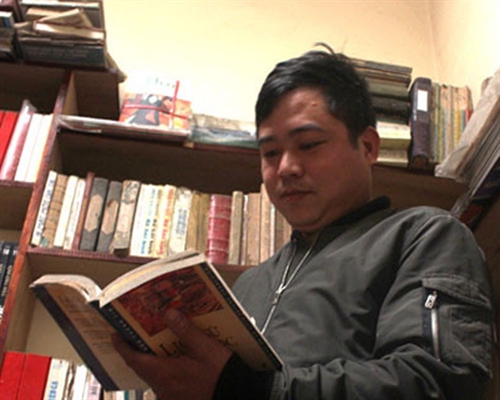 |
| Trịnh Hùng Cường today owns a precious collection of more than 10,000 books, newspapers and magazines |
A man who studied to be an electrical engineer has an amazing collection of books.
Trịnh Hùng Cường loves books because he loves reading.
He started reading as a child when his grandfather took him to the library.
There is a special word in English for a person who loves books. It is a bibliophile.
By Phan Xâm
With a great passion for books since a young age, Trịnh Hùng Cường today owns a precious collection of more than 10,000 books, newspapers and magazines.
They include the works of the country’s veteran writers, poets and historians. He is also proud to ownGia Định báo, the country’s first newspaper written inquốc ngữ (national Romanised Vietnamese language), published in 1865 in Sài Gòn (old name of HCM City).
He also has two copies of the first French version of the Tale of Kiều (regarded as the most significant epic poem in Vietnamese literature) which was published in 1884.
Everybody was surprised to know that Cường is an electrical engineer but he was passionate about collecting old books. Many people thought that only researchers, journalists and writers had a special passion of books and newspapers. What surprised them the most was his age, as he was just 35.
Endless passion
Cường was born in a family whose members are in the electrical and water equipment business. Actually he is an employee of the urban environment company in Bắc Ninh Province.
Besides, he works on the lighting-service development of the province.
Cường said that his passion for collecting books began with his love for reading. When he was young, he used to go to the library of his maternal grandfather and stay there for hours reading books. When he was 12 years old, he began to save money to buy books.
When he was a student at the Hà Nội University of Science and Technology, he used to go to book shops on Láng Street selling old books.
In 2000, when he was in the second year at the university, he sold his newly-bought computer to have enough money to buy a collection of history books that he liked.
“A computer at that time was very precious for me, but as I loved this book collection so much, I did not have to think too long before selling my computer,” he said.
“When I was a student, I bought books only because I loved reading them. At that time, I was not thinking of collecting them. But as time went by, I gradually realised that these are precious books, so I thought of collecting them,” he said.
In his house in Ngô Gia Tự Street in Bắc Ninh city, the large book collection is well preserved from the second floor to the fourth floor of his house.
To own such a big collection, Cường organised several “hunts”. In 2011, his family was surprised as he hired a lorry to transport books from Hà Nội to his house. To own such a large number of books, he spent two years travelling between the two cities to convince the owner of those books to sell them to him.
Two years earlier, he knew that in HCM City, someone wanted to sell books which were written by Nguyễn Văn Vĩnh, the veteran journalist and translator of Western literature in colonial Việt Nam.He then saved money to fund a trip to HCM City, and spent up to VNĐ100 million (US$4,500) to buy a bag of books, and manuscripts that had been written by the late journalist.
“That trip stunned my family, and surprised my friends,” he recalled with a smile.
Each year, he goes once or twice to the south to hunt for precious books.
Cường said that in many libraries and universities in the world, there are several people looking to buy old books of Việt Nam that can be used for their research, and teaching of Oriental culture.
“In foreign countries, with modern techniques, ancient books will be better preserved. But Việt Nam’s books are part of the country’s culture and property, and it is good to bring them back. We should respect the books and ensure preservation techniques become better,” Cường said.
The young man has tried hard to keep the books in a good condition. He uses powdered lime, and the dryer to desiccate. And then he uses white pepper to prevent termites from destroying the books. After that he covers the books with nylon, backs them, and then, preserves them in a wooden cupboard.
“I collect books to satisfy my passion. But moreover, I want to preserve the cultural value of my country and promote the intellectual value of the books among other people,” he said.
He also took part in several important book exhibitions in Hà Nội. Moreover, the young collector plans to invite some friends from France and Belgium to open an exhibition featuring the equipment to preserve the books.
Some people asked him if one day he would sell his “treasure” to others and he said he had never thought about it.
“The passion cannot be converted into money. I am determined to preserve this collection during my lifetime,” he affirmed.
To make his passion useful to other people, he plans to soon open a book coffee shop. – VNS
GLOSSARY
With a great passion for books since a young age, Trịnh Hùng Cường today owns a precious collection of more than 10,000 books, newspapers and magazines.
When you have a passion for something, you love it so much that you do not worry about how much time and money you spend on it.
They include the works of the country’s veteran writers, poets and historians.
A veteran is someone with lots of knowledge and experience of something.
He is also proud to own Gia Định báo, the country’s first newspaper written in quốc ngữ (national Romanised Vietnamese language), published in 1865 in Sài Gòn (old name of HCM City).
There are many alphabets in the world. The one that this newsletter uses is called the Roman alphabet. When the Vietnamese language was Romanised, it was written in the Roman alphabet.
He also has two copies of the first French version of the Tale of Kiều (regarded as the most significant epic poem in Vietnamese literature) which was published in 1884.
An epic poem is one that is long and comes from historical stories that are passed down from one generation to the next by parents telling them to their children, rather than by being written down.
Literature means written works.
When written works are published, they are put together in a book and copies of that book are offered for sale
Cường was born in a family whose members are in the electrical and water equipment business. Actually he is an employee of the urban environment company in Bắc Ninh Province.
An employee is someone who works for an organisation, a business or for another person.
When he was young, he used to go to the library of his maternal grandfather and stay there for hours reading books.
Your maternal grandfather is your grandfather who is your mother’s father.
In his house in Ngô Gia Tự Street in Bắc Ninh city, the large book collection is well preserved from the second floor to the fourth floor of his house.
Preserved means kept.
To own such a big collection, Cường organised several “hunts”. In 2011, his family was surprised as he hired a lorry to transport books from Hà Nội to his house.
To hire a lorry means to pay the owner to use it for a while.
To own such a large number of books, he spent two years travelling between the two cities to convince the owner of those books to sell them to him.
To convince somebody to sell his books means to talk him into thinking it would be a good idea to do so.
Two years earlier, he knew that in HCM City, someone wanted to sell books which were written by Nguyễn Văn Vĩnh, the veteran journalist and translator of Western literature in colonial Việt Nam.
A translator is someone who listens to, or reads, something that is in one language and then says it or writes it down in another language.
Colonial Việt Nam is the country when it was ruled as a colony by another country. In this case it was France, which ruled Việt Nam from 1887 to 1945.
He then saved money to fund a trip to HCM City, and spent up to VNĐ100 million (US$4,500) to buy a bag of books, and manuscripts that had been written by the late journalist.
Manuscripts are papers with writing on them.
A late journalist is a journalist who has died.
“That trip stunned my family, and surprised my friends,” he recalled with a smile.
Stunned means shocked and surprised.
Recalled means remembered.
Cường said that in many libraries and universities in the world, there are several people looking to buy old books of Việt Nam that can be used for their research, and teaching of Oriental culture.
Oriental means to do with the Far East.
“In foreign countries, with modern techniques, ancient books will be better preserved.”
Techniques are methods.
He uses powdered lime, and the dryer to desiccate.
Desiccate means to dry out.
And then he uses white pepper to prevent termites from destroying the books.
A termite is a type of ant.
“But moreover, I want to preserve the cultural value of my country and promote the intellectual value of the books among other people,” he said.
Intellectual means to do with intelligence and understanding.
He also took part in several important book exhibitions in Hà Nội.
An exhibition is a display.
“The passion cannot be converted into money.”
Converted means changed.
WORKSHEET
State whether the following sentences are true, or false:
© Duncan Guy/Learn the News/ Viet Nam News 2016
1. False; 2. True; 3. True; 4. True; 5. True.

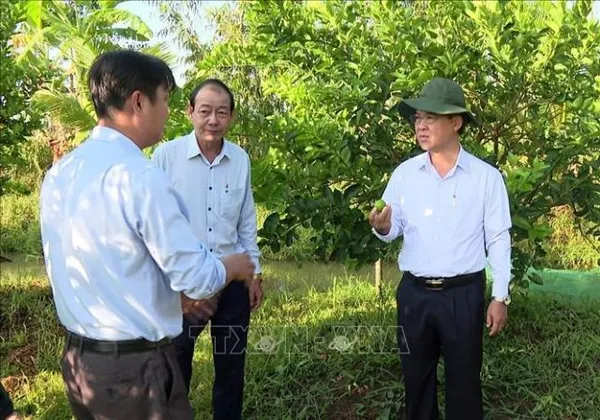
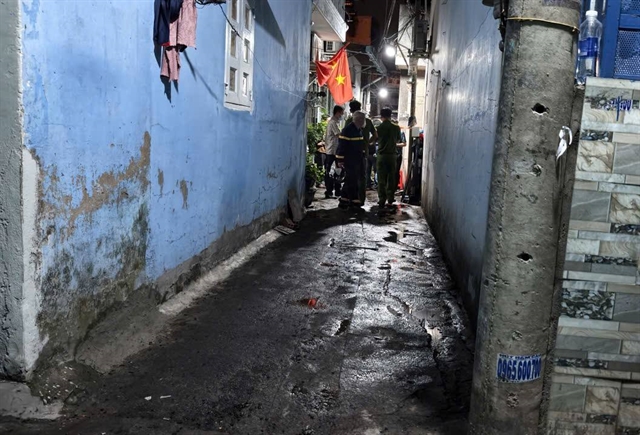
_med.jpg)
